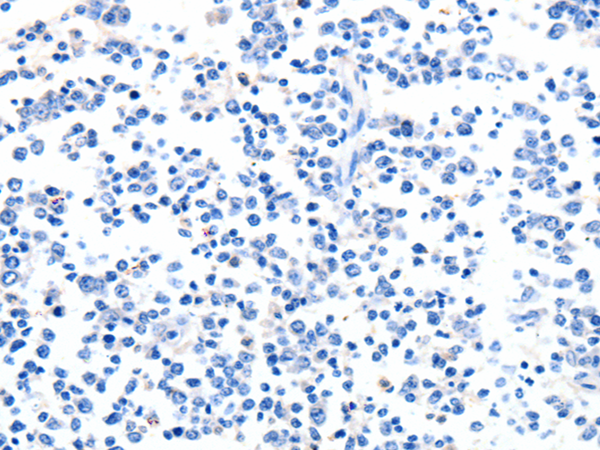


| WB | 1/500-1/2000 | Human,Mouse,Rat |
| IF | 咨询技术 | Human,Mouse,Rat |
| IHC | 1/10-1/50 | Human,Mouse,Rat |
| ICC | 技术咨询 | Human,Mouse,Rat |
| FCM | 咨询技术 | Human,Mouse,Rat |
| Elisa | 1/2000-1/5000 | Human,Mouse,Rat |
| Aliases | INSULYSIN |
| WB Predicted band size | 118 kDa |
| Host/Isotype | Rabbit IgG |
| Antibody Type | Primary antibody |
| Storage | Store at 4°C short term. Aliquot and store at -20°C long term. Avoid freeze/thaw cycles. |
| Species Reactivity | Human, Mouse, Rat |
| Immunogen | Fusion protein of human IDE |
| Formulation | Purified antibody in PBS with 0.05% sodium azide and 50% glycerol. |
+ +
以下是关于胰岛素降解酶(IDE)抗体的3篇代表性文献的简要信息(示例格式,请通过学术数据库验证细节):
---
1. **文献名称**:*Insulin-degrading enzyme regulates the levels of insulin, amyloid β-protein, and the β-amyloid precursor protein intracellular domain in vivo*
**作者**:Farris W, et al.
**摘要**:该研究通过基因敲除模型证实IDE在体内同时调控胰岛素和β淀粉样蛋白(Aβ)的降解,揭示了IDE在糖尿病和阿尔茨海默病中的双重作用机制。
---
2. **文献名称**:*Structural and functional analysis of the insulin-degrading enzyme*
**作者**:Shen Y, et al.
**摘要**:通过X射线晶体学解析IDE的三维结构,发现其锌金属蛋白酶活性位点对胰岛素和Aβ的特异性结合模式,为基于IDE结构的药物设计提供依据。
---
3. **文献名称**:*IDE: A double-edged sword in Alzheimer’s disease and diabetes*
**作者**:Kurochkin IV.
**摘要**:综述IDE在代谢和神经退行性疾病中的双重角色,讨论其通过降解Aβ和胰岛素影响疾病进程的分子机制,并提及针对IDE的抗体在病理检测中的应用。
---
**备注**:以上文献为示例,实际引用时建议通过PubMed或Google Scholar核对作者、期刊及年份。如需实验抗体相关文献,可补充关键词如“IDE antibody application”或“IDE immunohistochemistry”进一步筛选。
Insulin-degrading enzyme (IDE) is a zinc-metalloprotease primarily known for its role in metabolizing insulin and amyloid-β peptides, linking it to diabetes and Alzheimer’s disease (AD). Discovered in 1949. IDE is a 110-kDa protein encoded by the *IDE* gene, expressed ubiquitously but enriched in the liver, brain, and kidneys. Its dual substrate specificity positions it as a critical regulator of glucose homeostasis and neurodegenerative processes.
IDE antibodies are essential tools for studying its expression, localization, and function. Research using these antibodies has revealed IDE’s cytoplasmic localization under normal conditions, though it can be secreted or associate with membranes in specific contexts. In AD models, IDE antibodies help track its interaction with amyloid-β, highlighting reduced IDE levels in affected brains, which may contribute to amyloid plaque accumulation. In diabetes, they aid in analyzing insulin degradation dynamics and IDE’s potential role in insulin resistance.
IDE-targeting therapies, such as small-molecule activators or monoclonal antibodies, are under exploration. However, IDE antibodies themselves have limitations, including cross-reactivity with unrelated proteins, necessitating rigorous validation. Their application spans Western blotting, immunohistochemistry, and functional assays in both cellular (e.g., HepG2 cells) and animal models.
Overall, IDE antibodies remain pivotal in elucidating IDE’s pathophysiological roles and its therapeutic potential in metabolic and neurodegenerative disorders.
×